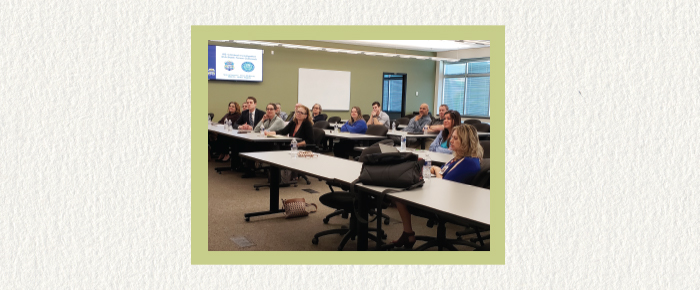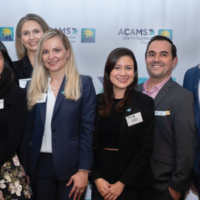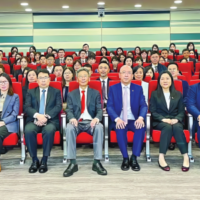
On March 12, 2020, Brett Brumbaugh and Robyn Wilson hosted an ACAMS Virginia Chapter event in Roanoke titled SAR Review Teams’ Best Practices for Success. The speaker was Trevor McMurray, a special agent with the IRS Criminal Investigation (CI) in Abingdon, Virginia.
During his presentation, McMurray explained how suspicious activity report (SAR) review team meetings work. Various law enforcement (LE) personnel at the federal, state and local levels meet periodically to discuss SARs that have been submitted by banks and credit unions with a nexus to the Western District of Virginia. McMurray also stated that 24% of all IRS CI cases originate from financial institution (FI) SAR filings and that is why they are so critical to LE.
The following are some of the discussion points from the event.
LE should get to know their Bank Secrecy Act (BSA) officers. In addition, BSA officers can contact LE when they have filed a SAR and they want to discuss it. FIs should reach out to LE if they want to discuss any activity, after they send documentation on a SAR, or if additional activity occurs that would be pertinent for LE to know.
In SAR narratives, LE may get excited over totals only to find that debits and credits are double-counted. SAR narratives should be written in chronological order. SARs should avoid too many details but provide a good description of the activity and suspected crime upfront. If the SAR is on suspected money laundering, FIs should include that in the title of the SAR or in the first paragraph. FIs should also include copies of signature cards in backup documentation. The more information provided, the more attention the SAR will receive by LE.
Individuals that become victims of scams and act as money mules are often complicit in the scam and should be included as a suspect if they are a conduit. LE can talk to these individuals and explain that their activity is considered fraudulent and if they continue to participate in this fraudulent activity, they can be prosecuted. Do not assume a person is not involved in the scheme unless an FI or LE has proof they are not.
LE can request supporting documentation that shows all of the details of a SAR narrative. FIs can give LE any supporting documentation used by the FI to file the SAR but anything else would require a subpoena. However, LE often has trouble obtaining supporting documentation from FIs. If a SAR states that an FI has specific information, they will need to provide that to LE if asked. If the FI later tells LE they do not have this information, that could create issues for submitting the SAR. It could also be a violation with the Financial Crimes Enforcement Network.
Four LE cases were presented to the group that were successfully prosecuted in the Western District of Virginia. Links to these cases are listed in the footnotes.1
The event served as a great relationship-building opportunity between FIs and LE. FIs walked away with some best practices they can implement to improve SAR filings and supporting documentation and work more effectively with LE. On the other hand, LE learned more about what goes into a SAR filing and how to obtain more information from the FI.
Robyn R. Wilson, CAMS, SVP compliance, Freedom First Federal Credit Union, Roanoke, VA, USA; ACAMS Virginia Chapter, richmondchapter@acams.org
- True Crime Daily, “Divorce Entangled in Online Romance Scam,” YouTube Video, 7:22, May 13, 2016, https://www.youtube.com/watch?v=z9u4-sK8h5c; “Four Sentenced for Roles in Defrauding the United States,” U.S. District Court for the Western District of Virginia, September 12, 2019, https://www.justice.gov/usao-wdva/pr/four-sentenced-roles-defrauding-united-states; “Four Sentenced For Roles in $10 Million Tax Fraud And Structuring Scheme,” U.S. District Court for the Western District of Virginia, March 20, 2014, https://www.justice.gov/usao-wdva/pr/four-sentenced-roles-10-million-tax-fraud-and-structuring-scheme; “Billings coal mining official admits to wire fraud, money laundering, false statement changes,” U.S. District Court for the District of Montana, December 18, 2018, https://www.justice.gov/usao-mt/pr/billings-coal-mining-official-admits-wire-fraud-money-laundering-false-statement-charges










